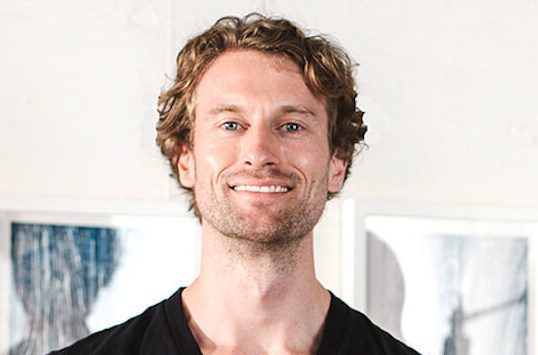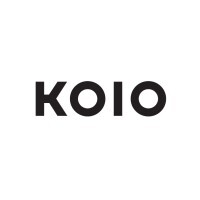What makes for a good story? Is it the world building? The hero? The big plot twist?
How can we be left feeling unsatisfied at the end of a 2-hour-long movie, yet be left in tears by a 30-second commercial? What separates the story that resonates and the one that falls flat?
And what does any of this have to do with business?
“I love brands — I love the stories that they tell,” Johannes Quodt says. “When I was watching TV, I got more excited about the commercials than the rec program.,Particularly what I do remember is how I love these micro stories they told. And I think the storytelling aspect of, of commercials and brands is really an essence. What fascinates me
Johannes is the co-founder and co-CEO of luxury Italian shoe brand Koio. Johannes recognized from a young age that stories have the power to connect with people in a profound way — a vital skill for still-blooming brands and established goliaths alike. It’s not enough to have a great product, that product – and every component that goes into it – needs a story that connects with the consumer in a way that your competitors’ can’t.
Johannes has found this perfect blend of story and product, and today he shares what that discovery process has been like, how Koio is creating a new category of sustainable luxury, and how he and his cofounder scaled Koio from one “perfect shoe” to an ever expanding collection that is attracting interest from the likes of GQ, Vogue, and even celebrities like Joe Jonas.
All that and more on The Journey.
Main Takeaways:
- Curate the Marketing Story you Tell: When you can tell your consumer a story about the product that you are selling to them, they will be more excited by it and more likely to engage. By authentically curating stories around your brand, you can also build a reputation and earn trust with other great storytellers, opening doors for collaboration.
- Quality Should be Synonymous with Social and Environmental Sustainability: Industry and factory production revolutionized commerce a long time ago, but many brands are still using unsustainable, irresponsible farming and sourcing practices. Bringing about social and ecological change in business adds a layer of complexity to the work your team does, but building that respect and loyalty as a brand is irreplaceable.
- Capitalize on your close network: Even if you just have the email addresses of your fellow students in MBA school, you can still start your business by talking to them or leaning on them as a resource, both financially and for support. Being inspired from those you see around you doing new and creative things can lead to great inventions of your own. Surround yourself with greatness and then get going.
Key Quotes:
“I love brands. I love the stories that they tell. When I was watching TV, I got more excited about the commercials than the program.”
“Particularly what I do remember is how I love these micro stories they told. The storytelling aspect of commercials and brands is really an essence that fascinates me.”
“Our first pop-up was February, 2015; it was the coldest day in a decade. There was an event the night before in that space and they had to paint. It was a completely white space. After that event everything was dirty, so they painted it the night before, but because it was so cold the paint didn’t dry. We stepped in in the morning and the paint was still completely not dry. So we drove to Ikea and bought rugs but then it worked out and people came and everybody had a good time and we sold our first shoes and got great feedback.”
“We’re honestly still figuring out how to tell this story [of regenerative farming] because it’s so complex, and there’s so many different elements to it. We try to find the right balance of getting the message across and making it digestible. The way we’re planning to do it is to have some really tagline driven statements and key facts on Instagram and in our emails. Then provide much more depth on our website and on our blog platform stories.”
“One of our first collaborators was JonBoy, an awesome tattoo artist who really invented a unique style of tattooing. And the way we did it with him was also quite unique. We designed a shoe together that was inspired by his tattoos. It had elements of his most famous tattoos, and it was a very close design process. But then we launched this shoe with a tattoo pop up in our New York store. So JonBoy brought us to two chairs on a Saturday in New York. And, um, his wait list was months long as we can. You cannot get an appointment with him. Uh, and for that day only he opened his book and anybody who was early enough could get tattooed by JonBoy. We had editors from Vogue and GQ get tattoos in our store.”
Bio:
Johannes Quodt is the co-founder and co-CEO of Koio, a modern luxury footwear brand. At Koio, Johannes oversees the brand’s creative direction and design, marketing, manufacturing, and business development.
Prior to founding Koio, Johannes worked as a management consultant for McKinsey and Company in Zurich, Switzerland. He earned his MBA at the Wharton School, from which he graduated as a Palmer Scholar. Johannes also holds a Bachelor of Arts in Economics and a Bachelor of Arts in Business Administration from Switzerland’s University of St. Gallen, and an MSc in Accounting and Finance from the London School of Economics.
Johannes was born in Munich, Germany, and grew up in a small village at the foot of the Bavarian Alps. Outside of the office, Johannes enjoys exercising, meditating, flying a Cessna 182, and playing the guitar.
—
This season of the Journey is produced by Mission.org and brought to you by UPS. To learn how UPS can help your small business, go to UPS.com/pivot.




